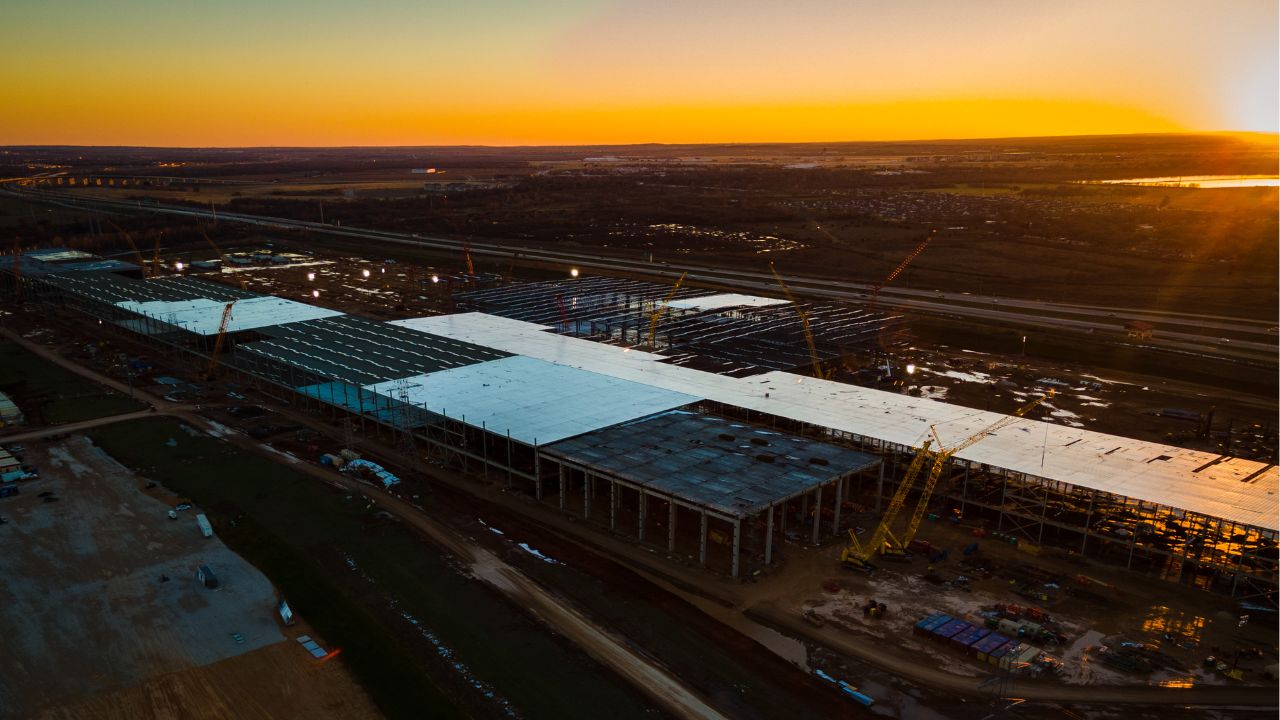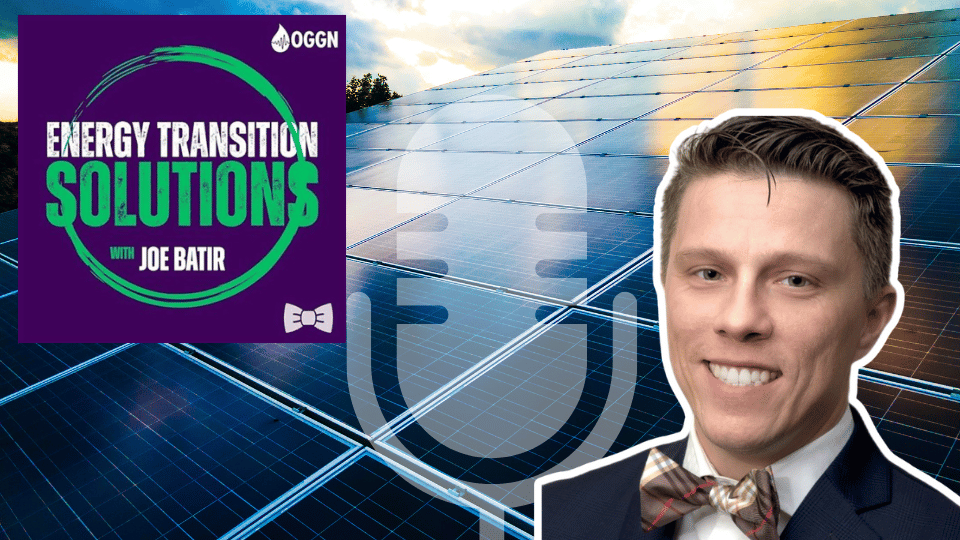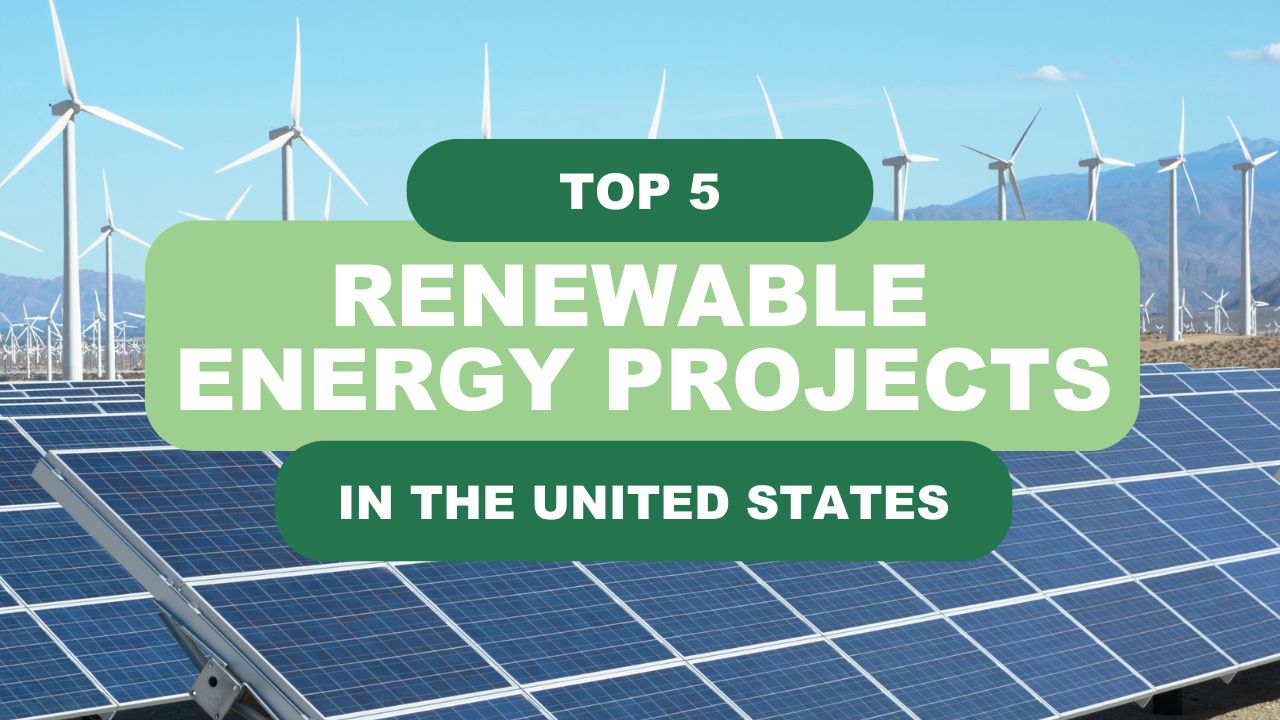North America’s EV Battery Manufacturing and Energy Storage Boom: Top Projects to Watch
10 Sept, 202412:42The electric vehicle (EV) revolution and the push for decarbonisation have sparked a boom in...

The electric vehicle (EV) revolution and the push for decarbonisation have sparked a boom in battery manufacturing and energy storage projects across North America, largely in Canada, which is fast becoming a global leader in the sector. The country sets the stage for a sustainable and electrified future with significant investments and strategic partnerships. As the demand for EVs continues to rise and the need for grid-scale energy storage becomes more pressing, many gigafactories and battery storage facilities are expanding and emerging across the region. The Prime Minister of Canada states that automotive and battery companies have invested nearly $31 billion in EV manufacturing nationwide in the last four years. These ambitious projects are laying the foundation for a robust EV supply chain, solidifying Canada’s role as a leader in the green energy transition.
This blog explores the top EV battery manufacturing and battery storage projects currently underway or slated for construction in the region, including:
- Oneida Energy Storage
- St. Thomas Battery Cell Gigafactory
- NextStar Energy EV Battery Plant
- Honda New Assembly Plant and Standalone Battery Facility
- Northvolt Battery Gigafactory

What is Causing the Influx of EV Battery Plants?
The surge of EV battery plants and storage facilities across North America is closely tied to significant policy shifts and investments in the green energy sector. A key driver behind this momentum is the U.S. Inflation Reduction Act (IRA), enacted to stimulate clean energy investments and accelerate the transition to a low-carbon economy. The IRA sets specific criteria for EV manufacturers to qualify for tax credits, incentivising regional production.
In 2024, to be eligible for half of the $7,500 tax credit – amounting to $3,750 – at least 60% of the value of battery components must be produced or assembled in North America. This requirement will increase to 100% by 2029. For the remaining credit, at least 50% of the value of critical minerals used in batteries must be sourced from the U.S. or countries with which it has free trade agreements. For more details on this, visit the U.S. Department of Treasury page.
The tax incentives and financial support provided by the IRA are encouraging both established and start-up energy firms to invest in EV battery plants and gigafactories, spurring a construction boom across the continent. With its rich natural resources and solid governmental support, Canada, in particular, is capitalising on these developments by becoming a critical hub for EV battery manufacturing.
The Rise of Gigafactory Facilities
The increasing development of gigafactories marks a major shift in the EV battery sector. According to Statista, the global demand for battery manufacturing is expected to exceed 2,000 gigawatt hours (GWh) by 2030. To meet this demand, 369 gigafactories are planned for construction before 2030, 254 more than three years ago.
These sizable facilities are designed to produce batteries on an unprecedented scale, with a 1 GWh facility capable of producing batteries for approximately 17,000 vehicles. Countries and regions such as North America are investing in these facilities due to this impressive output capacity. A notable example is Tesla’s Nevada Gigafactory, one of the world’s largest plants for electric vehicles, lithium-ion batteries, and energy storage products, producing over a billion battery cells a year.

5 Top EV Battery Manufacturing and Energy Storage Projects in Canada
1. Oneida Energy Storage Facility
The Oneida Energy Storage LP (OES) is a groundbreaking project presently under construction in Southwestern Ontario. It is set to become one of the world’s most extensive storage facilities, valued at $6 billion. Northland Power owns and operates the facility in partnership with NRStor, the Six Nations of the Grand River Development Corporation, and AECON (who are constructing the facility). This project represents a substantial investment in clean energy infrastructure and is designed to support grid stability and renewable energy integration.
Built on a 10-acre plot of land, the Oneida Facility has a 250 megawatt / 1,000 megawatt-hour storage capacity and is expected to produce approximately 475 MW upon completion in 2025. The facility will also draw electricity from the Ontario power grid during off-peak periods and release it when demand increases. This renewable cycle ensures a reliable energy supply and is expected to reduce Ontario’s greenhouse gas emissions by 4.1 million tonnes.
Due to the scale of the project, OES LP will provide over 900,000 hours of local employment over the 20-year fixed contract with the Independent Electricity System Operator (IESO), creating numerous job opportunities for professionals seeking roles within the renewables industry.
Canada has invested heavily in the battery sector to support the region's transition into a clean energy economy. For this project, the Canada Infrastructure Bank (CIB) has invested up to $535 million to accelerate construction and help the project meet future energy needs.
2. St. Thomas Battery Cell Gigafactory
Through its newly formed company, PowerCo SE, Volkswagen is boldly entering the EV market with its first overseas gigafactory in North America, located in St. Thomas, Ontario. The gigafactory, valued at $7 billion, is currently under construction and will become a cornerstone of VW’s electric vehicle strategy when production starts in 2027. AECON has once again secured the infrastructure package for this project, helping to bolster North America’s EV battery production capacity and create up to 3,000 job opportunities in the region. The decision to expand into North America is part of Volkswagen’s ambitious EV plans, which include introducing 25 new EV models in the U.S. and Canada by 2030.
The St. Thomas Gigafactory is also PowerCo SE’s largest cell factory, spanning 210 football fields (370 acres). It will be built with six production blocks and supplied with CO2-free energy. The final expansion phase will generate a potential production volume of up to 90-gigawatt hours, enough for 1 million EVs a year.
With the Volkswagen Group based in Germany, PowerCo-COO Sebastian Wolf has strategically developed a separate Canadian entity, PowerCo Canada Inc., headquartered in St. Thomas. This locality will allow PowerCo to direct operations in North America, working closely alongside the province of Ontario, the Canadian Government, and local labour forces.
3. NextStar Energy EV Battery Plant
Automotive giant Stellantis and leading lithium-ion battery producer LG Energy Solution partnered in 2022 to build the NextStar Energy EV Battery Plant in Windsor, aiming to become the foremost battery hub in North America. Carlos Tavares, Stellantis CEO, stated:
“Our joint venture with LG Energy Solution is yet another stepping stone to achieving our aggressive electrification road map in the region, aimed at hitting 50% of battery-electric vehicle sales in the U.S. and Canada by the end of the decade.”
NextStar Energy supports Stellantis’ Dare Forward 2023 plan, which sets aggressive goals to achieve carbon net zero by 2038. The project, valued at $2 billion, is still under construction. The building’s exterior is approximately 90% complete, and the interior construction and equipment installation has just begun. Amico is responsible for the infrastructure package, ensuring the facility meets the highest efficiency and sustainability standards.
When operations begin in 2025, NextStar Energy aims to achieve a yearly production capacity of 49.6 gigawatt-hours, creating more than 2,500 new jobs in the region. By the end of construction, the project could be worth up to $15 billion in tax breaks to its partners, Stellantis and LG Energy Solutions.
4. Honda New Assembly Plant and Standalone Battery Facility
In a tactical move to improve its EV production capabilities, Japanese automaker Honda Motor Co., Ltd. has announced a massive $15 billion investment in a new assembly plant and battery facility in Alliston. The project is slated to begin imminently and is expected to be completed by the end of 2028. The plant will produce up to 240,000 vehicles annually, and the EV battery facility will have a capacity of 36 GWh per year. This investment by Honda aims to support global initiatives to make BEVs and FCEVs represent 100% of vehicle sales by 2040. Once fully operational, these two facilities will create more than 1,000 manufacturing jobs, boosting the local economy.
With the backing of the federal and provincial governments, Honda and its partners will benefit from up to $2.5 billion in EV supply chain and clean technology manufacturing tax credits. These governmental incentives highlight the significant support for EV infrastructure development in Canada.
Following the construction of these facilities, Honda will also establish a cathode active material and precursor (CAM/pCAM) processing plant and separator plant to finalise the supply chain. These will be developed through joint venture partnerships with POSCO Future M Co., Ltd. and Asahi Kasei Corporation, respectively. Developing these additional plants will help create more direct and indirect jobs across Canada.
5. Northvolt Battery Gigafactory
Swedish battery manufacturer Northvolt is constructing a $7 billion gigafactory plant in the Montreal region of Quebec, known as Northvolt Six. Northvolt, a leader in sustainable battery technology, is leveraging Canada's rich natural resources and strong commitment to green energy to establish an impressive battery storage hub. The factory will span 170 hectares and include a cathode active materials plant, a battery cell manufacturing unit, and a battery recycling operation to improve Canada’s EV landscape.
Upon completion in 2026, the project's first phase will have a yearly battery capacity of 30 GWh, increasing to 60 GWh. It will also create over 3000 direct jobs, strengthening the region's economy and community. Prime Minister Justin Trudeau stated: “This facility will be able to produce batteries for a million electric vehicles a year and, at full production capacity, the plant will contribute up to $1.6 billion to our economy.”
Northvolt Six is backed by governments nationwide, with Quebec and Ottawa making substantial investments. Quebec pledged $2.9 billion in financing last year, and Ottawa has invested over $4 billion overall. This facility will support North America’s EV battery manufacturing needs and improve energy storage capabilities, providing a critical component for renewable energy systems in Canada.
Project Round-Up
These five projects represent only a fraction of North America's ongoing developments in EV battery manufacturing and battery energy storage. It is clear that Canada is quickly becoming a powerhouse in these fields. With substantial investments into gigafactories and energy storage projects, the country is well on its way to becoming a key player in the global EV landscape. These projects not only signify a commitment to sustainable energy but also open up vast opportunities for growth and innovation in the sector.
Looking to Grow in the Renewable Energy Industry?
The demand for skilled professionals in these sectors is skyrocketing as the industry continues to grow and evolve. From engineers and technicians to project managers and sustainability experts, the battery and energy storage sectors offer exciting career opportunities.
NES Fircroft is a global leader in engineering staffing solutions, specialising in battery and energy storage recruitment. Our consultants help connect clients to skilled professionals within the industry, sourcing and placing talent in large-scale projects like the ones mentioned in this blog.
If you need support with your hiring processes or want to tackle your talent shortages quickly, we offer a comprehensive suite of talent acquisition services to help you find the best talent. We are also a trusted Employer of Record (EOR) partner, assisting businesses to expand globally with minimal hassle.
If you want more information on our recruitment services, please contact us today.









